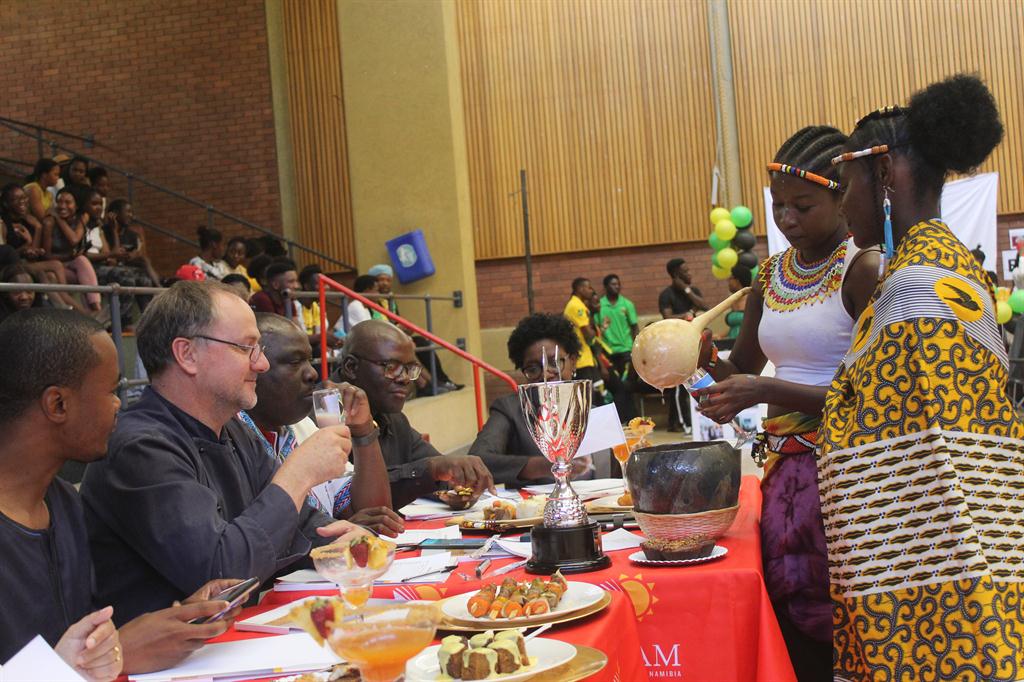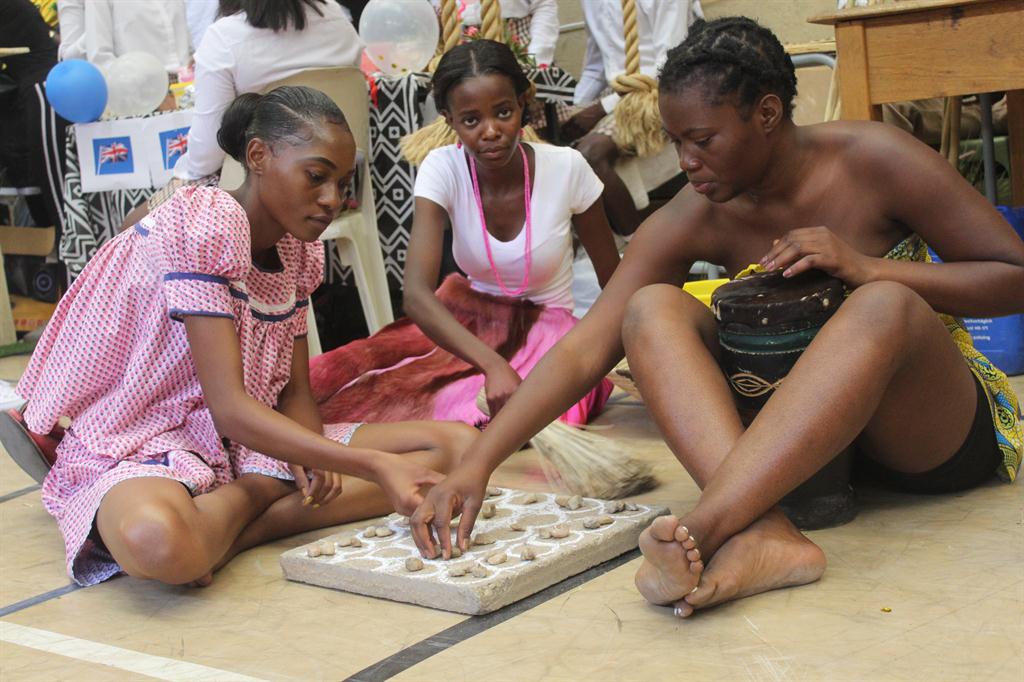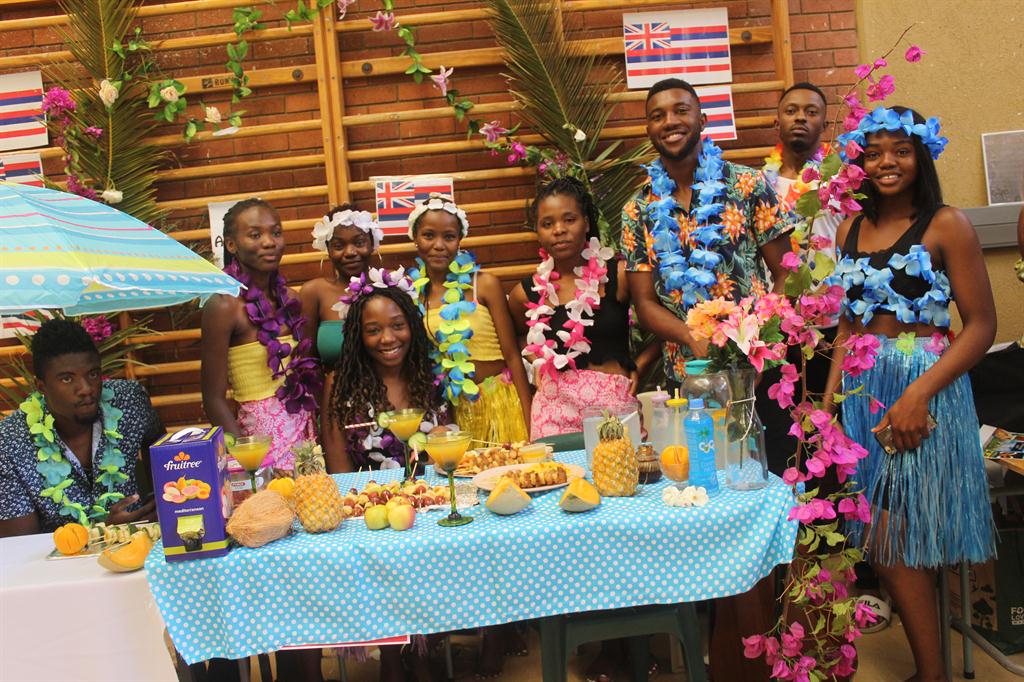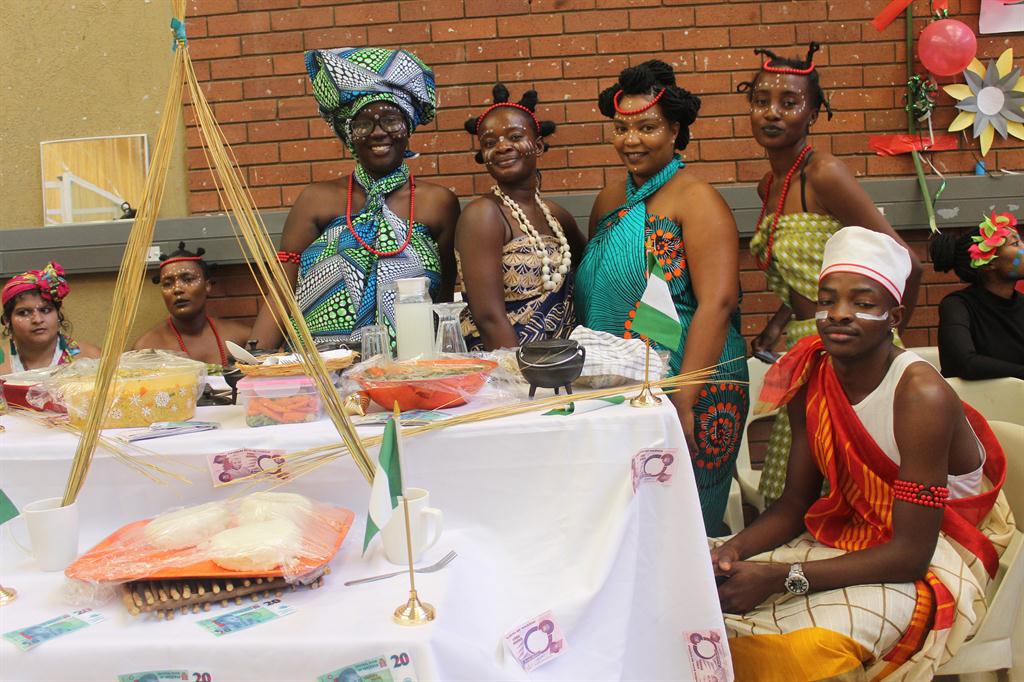One institution, multiple cultures
The University of Namibia recently hosted up to 15 groups, each representing a different country, in a thrilling cultural extravaganza.
ESTER KAMATIUnam’s organisational behaviour class recently hosted an event aimed at testing how well students could apply the theoretical content they had learned throughout the year.
Each group of students chose a country to represent and had to do sufficient research on that country’s culture, traditional attire and popular cuisine.
Victoria Mabuku, representing Japan, said that country has unique customs that they wanted to highlight, such as the respect people show others, especially elders.
“Shaking hands is inappropriate behaviour and giving tips is (considered) disrespectful in Japan. Plus, they are the animé and manga capital in the world,” she explained.
At the event hosted on 8 September, Secilia Jonas, one of the students, said her group chose Britain because they wanted to highlight the sovereign power of the queen as well as her friendly nature, which they emphasised in their presentation.
They had to present cuisine prepared by the group members and on their menu they had popular English dishes such as mashed potatoes and fried fish.
“It was difficult to get some of the needed ingredients locally and we had to improvise,” said Jonas.
According to Dr Wilfred April, the facilitator of the event, it served as a practical component of assessment and constituted 20% of the students’ total grade.
The presentations were judged by a cutting-edge panel including Mandela Washington fellow Josaphat Tjiho.
“The world is becoming a house with two different rooms,” he said, explaining that no country exists in a vacuum and exploring different cultures is vital.
He said the event was exciting and it was evident how much work the students put into organising the event.
He highlighted that innovation was one of the vital criteria for the judges. The students also had to show sufficient knowledge of the country’s background.
Tjiho gave the highest grades to groups that showed teamwork and unity in their presentation, as well as the individual efforts of all team members.
He said the event was a platform for students to come together and showed that the institution accommodates people from all cultures.
At the end of the event, the three best represented countries were announced by Dr April, a lecturer at Unam.
In first place was the group representing China, who won a floating trophy courtesy of OTB Sport and a N$500 cash prize. Jamaica came second, winning N$400, and in third place was India, whose team members received a N$200 cash prize.
“I was really amazed by the phenomenal support we received in 2019. It just shows how our students want to be agents of change now and in the near future,” said April.
He added that next year’s extravaganza will hopefully include Unam, IUM and Nust students. The theme he has in mind for next year is ‘Battle for Diversity’.










Comments
My Zone
No comments have been left on this article